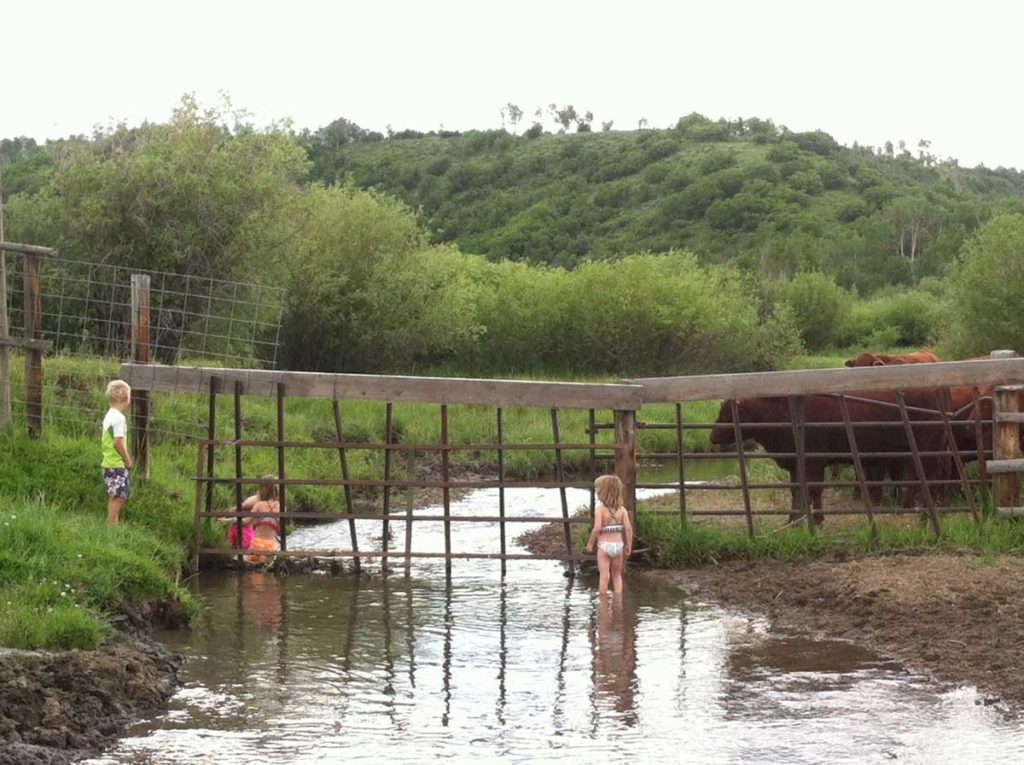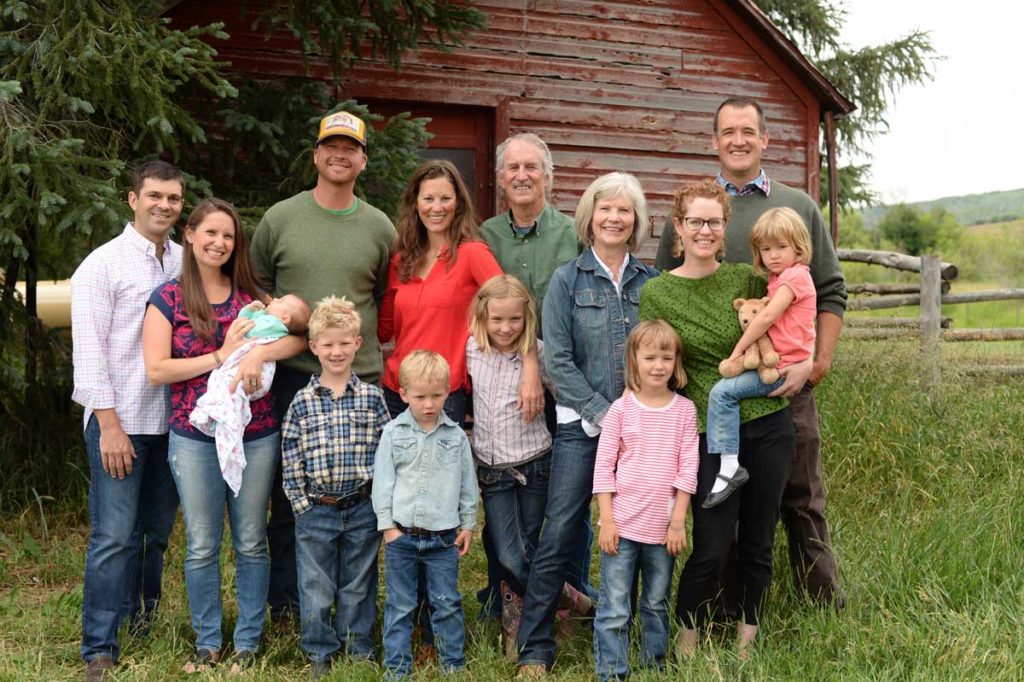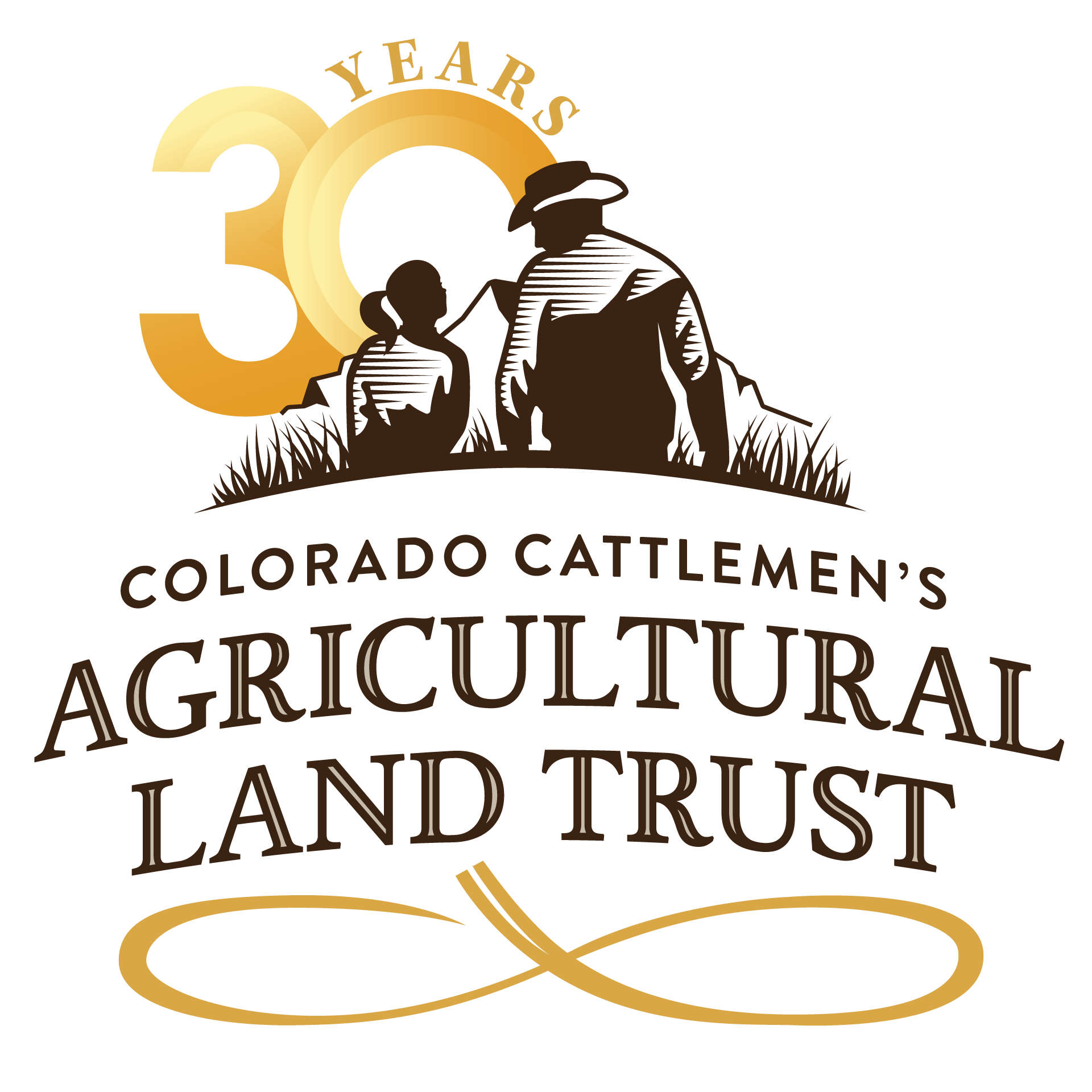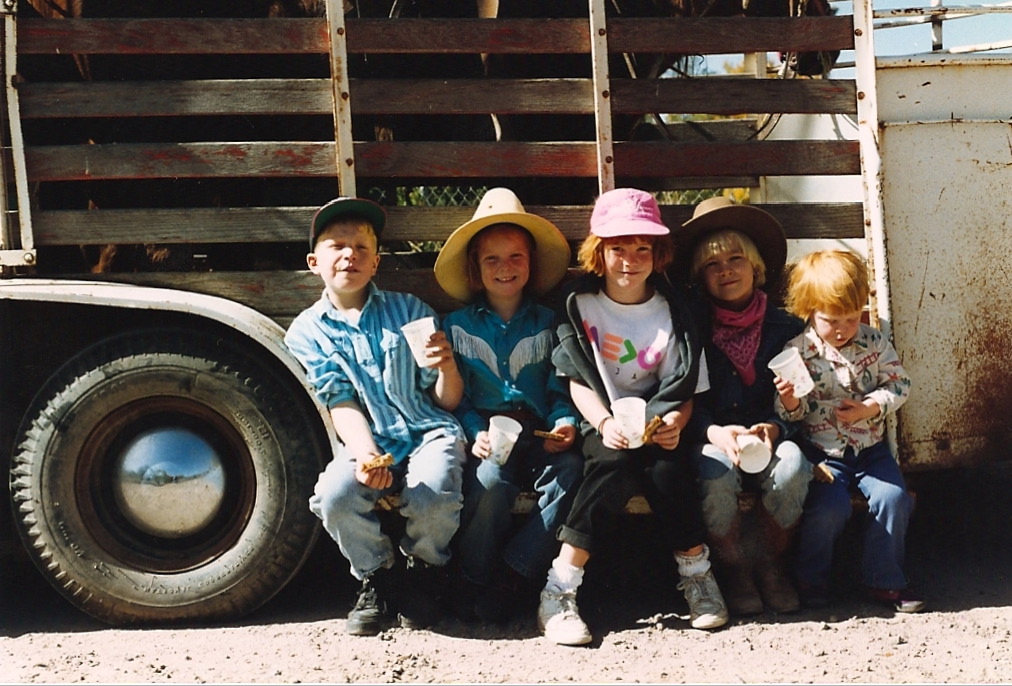Creatures Of Our Own Histories – Written By Maggie Hanna, Molly Fales, & Molly Fetcher Lotz
Jay Fetcher:
Colorado Cattlemen’s Agricultural Land Trust started in 1995 because a few of us were looking for solutions to the family transfer of ranching property to the next generation. Kirk Hanna, Bill Fales, and I investigated tools such as conservation easements that could help these ranching families. Ironically, the three of us were the fathers of daughters and were unsure of their interest in taking over our family ranches. Twenty years later, these young women have become integral to our ranching operations with their passion for Colorado and its open productive lands. Enjoy their stories.
Maggie Hanna:
I am learning my past, my dad, and my legacy from others, from the stories they share and from the unwavering support they have shown me as I stumble my way into a career. My dad didn’t get to teach me to rope, doctor foot rot, or watch the market, but he did leave me with a profound legacy: a legacy of family, land, and conservation that has driven me forward since I can remember.
My sister and I were young when we learned to think critically, to evaluate holistically, where calves come from, and how and when to stay out of the gate. Many lessons came in the form of being left at a water tank to wait (and wait and wait), or being asked to swim across a pond to stretch out electric fence, or at eight years old manning the noxious weed booth at the county fair. We grew up in a house that believed whole-heartedly in a conservation ethic, an ethic we try to apply not only to land and livestock, but to the system we are each part of.
Last summer I was home on the ranch learning to be in business with family (a few tears and lots of discussions about why we can’t change everything at once), when Erik called with an offer to join the CCALT team. It was an offer that not only presented a paycheck, but an opportunity to contribute in a meaningful way to a lifestyle that means the world to me, to build my own legacy, and to commit to a Colorado with ranching in its future.
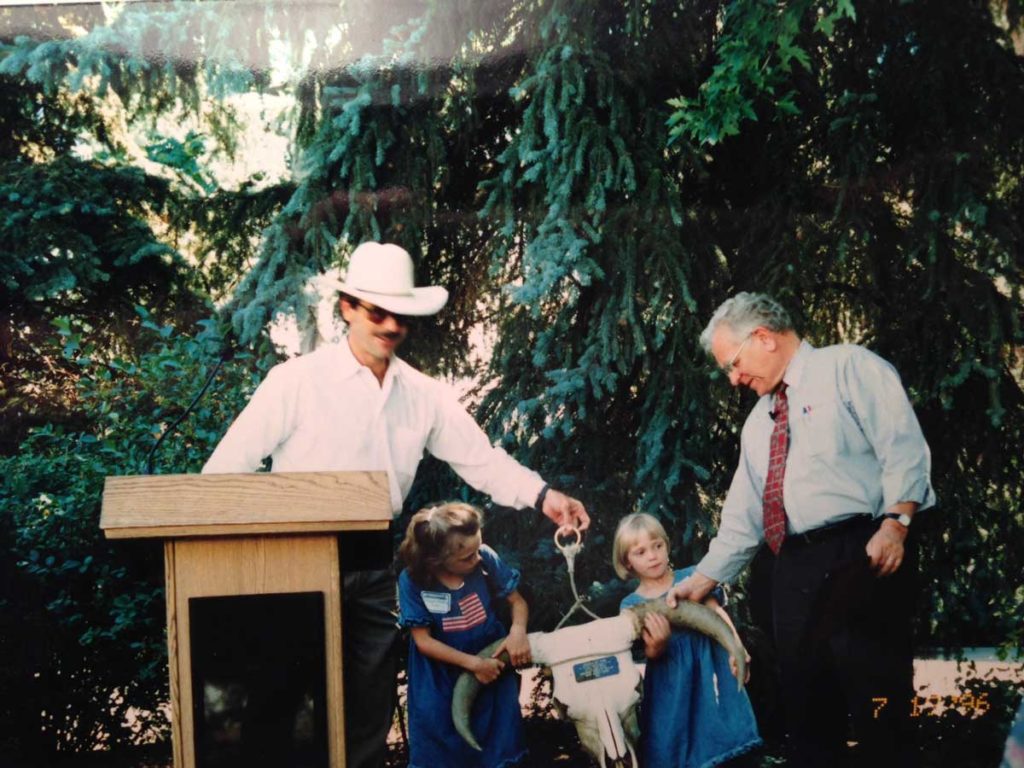
Maggie, sister Emy, and their dad Kirk accept the Smart Growth award from Governor Romer in 1997. 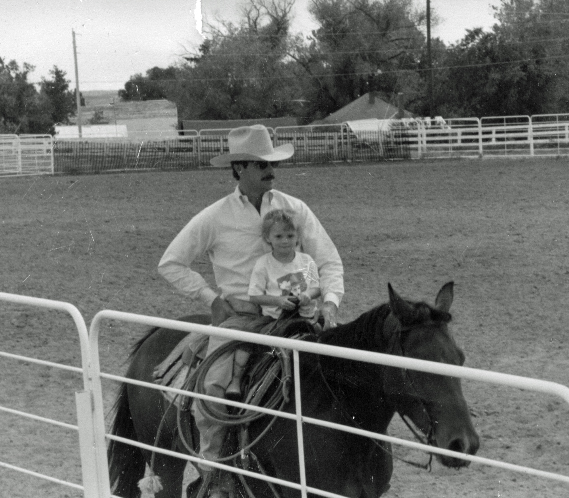
Maggie riding with her dad. 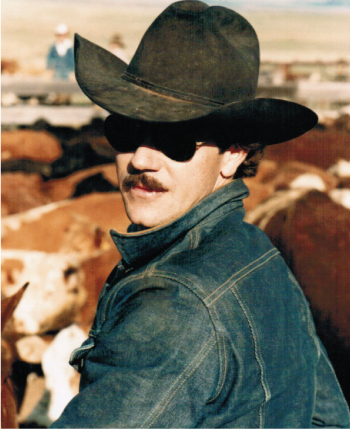
Kirk Hanna sorting cattle.
Molly Fales:
One of my first babysitters was my grandfather. He was laid up with a broken leg from a horse wreck; my parents were working for my grandfather and trying to start their own ranch, and I was a sedentary baby. Like most ranch kids my sister Katie and I grew up working alongside our parents and grandparents. As soon as I was coordinated enough to ride, I started tagging along with my parents on the ranch- refusing to let anyone lead my horse. Although I’d like to say this showed my early initiative to be involved in ranching, my refusal to hand over the reins had more to do with an incident when the lead rope caught under mom’s horse’s tail causing her horse to buck and mine to jump (leaving me on the ground).
There was never any mystery about what our parents did for work. We also knew that our dad was part of a group working to start an agricultural land trust. Growing up with the land trust, Katie and I heard stories of the land trust’s formation, overheard conference calls, and took a lot of phone messages. When my parents placed our ranch in a conservation easement, we were part of that process too. For Katie and me the conservation easement created options instead of limiting them. We know that the land, our home, will be there when we’re ready to return to the ranch in any capacity. This knowledge that the ranch will remain productive for us and for future generations is the result of the CCALT’s work and the founders’ dream. Now, after completing law school, I have chosen to invest my skills and energy to further an organization that I grew up alongside and whose mission has always been a part of my life.
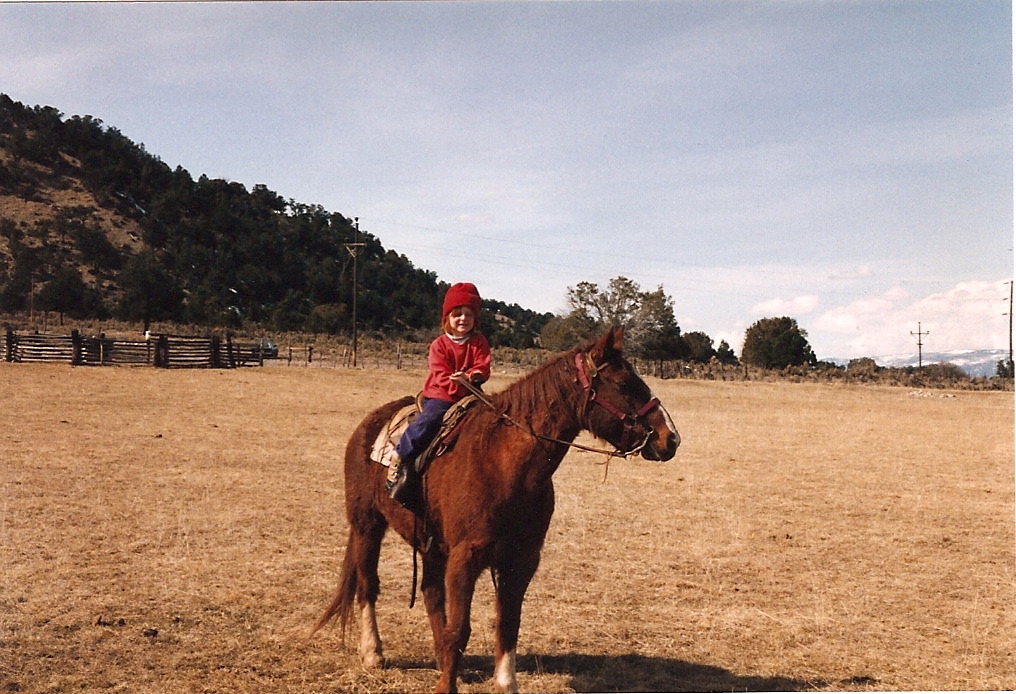
Molly riding Suzy on the ranch. 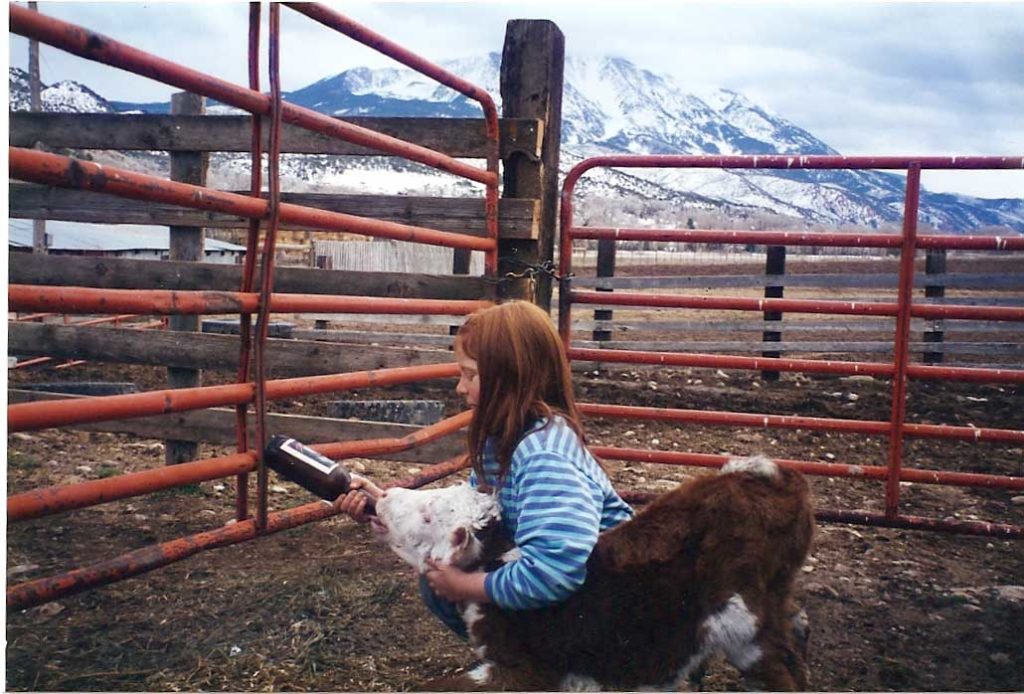
Molly bottle feeding a calf with a Samuel Adams bottle. 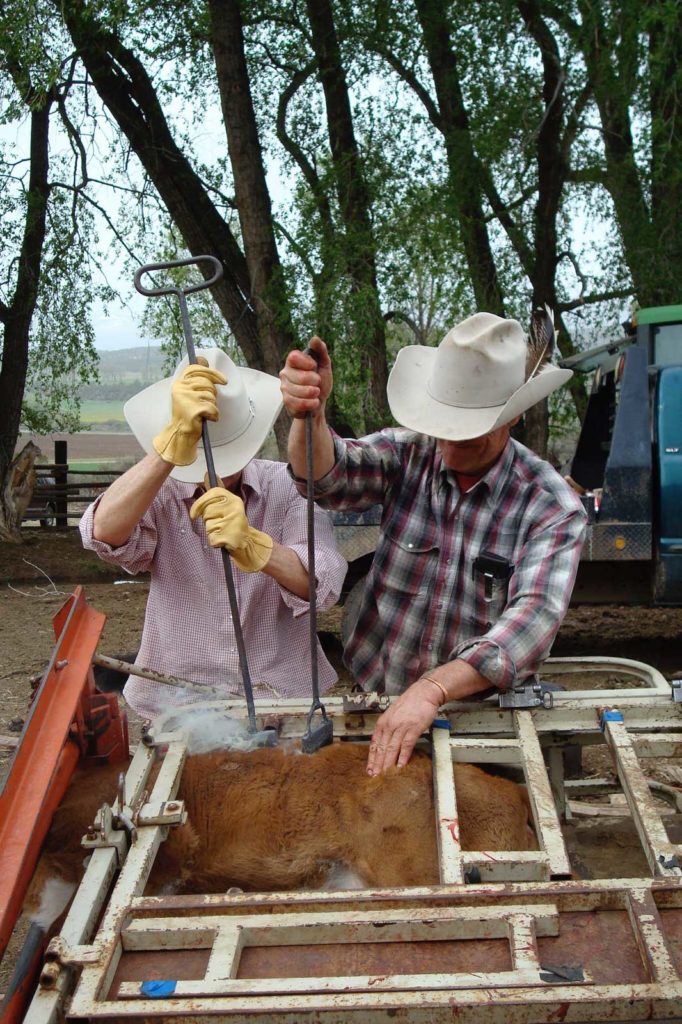
Bill Fales and Marj Perry branding calves on a calf table.
Molly Fetcher Lotz:
I was a 20-year-old in 1995 working on a dude “ranch” down in Durango when I was requested to speak to a reporter about the innovative work my dad, Jay Fetcher, was doing by putting our land under easement and starting the CCALT. At that age, at that time in my life, my own life was the center of my universe, not the ranch and certainly not the legacy of land conservation. I had just left the ranch I so desperately wanted to get away from for the last five years of my adolescence, and what was happening on the ranch was, I made sure of this, none of my concern.
The conversation with the reporter was short and I walked away from the pay phone not thinking about the impact or innovation of what was happening in the world where my roots ran so deep. Fast forward 20 years and I now find myself living on that ranch that I so desperately wanted to escape. Here is where I raise my three young kids who not only get to see their grandfather every day as he comes out to continue his work on the ranch, but they get to look out on a view that will never change. Here is where my husband and I choose to work, live and love. Here is my new center of the universe.
As our stories and choices illustrate, the enthusiasm and passion that laid the foundation for the land trust appear to be contagious and hereditary. On one hand a conservation easement is a legal tool, but in reality it is a product of devotion to land, family, and the way we were raised. Working on the family ranch and with CCALT is the way we have chosen to carry on our families’ legacies and leave our marks on conservation and Colorado. From one generation to the next.
